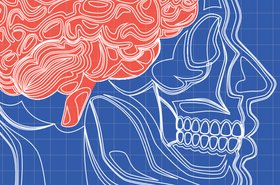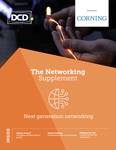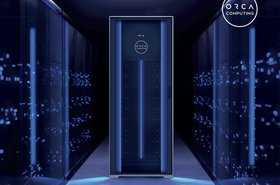Google DeepMind has hired a former Rain AI engineer with a background in neuromorphic computing for an AI hardware team.
Maxence Ernoult spent just over two years at Rain AI, a Sam Altman-backed neuromorphic chip startup that has a letter of intent from OpenAI. The hire has not been previously reported.
Prior to his time working on in-memory computing at Rain, Ernoult worked at IBM and studied neuromorphic computing at Sorbonne Université.
Neuromorphic computing aims to mimic how the brain works, by using hardware and software that simulate the neural and synaptic structures and functions of the brain.
"Absolutely thrilled to announce that I'm starting next week as a senior research engineer at Google DeepMind in Albert Cohen's team dedicated to AI hardware design," Ernoult said in a LinkedIn post.
Cohen is a research scientist at Google DeepMind who in 2020 published research on Computing-In-Memory (CIM) architectures. "Memristor-based, non-von-Neumann architectures performing tensor operations directly in memory are a promising approach to address the ever-increasing demand for energy-efficient, high-throughput hardware accelerators for Machine Learning (ML) inference," the abstract states.
Across Google DeepMind, a number of researchers appear to be working on AI chips, under director Olivier Temam, who says that he is building the "hardware infrastructure for AGI." Temam previously co-led Google's Cloud Tensor Processing Unit (TPU) project for a year and created a TPU project for embedded and low-power applications.
TPUs are Google's broader AI chip family, used to train Gemini and available on its cloud service.
Temam is also part of DeepMind's AlphaChip effort, which aims to use AI to help design chip layouts. The company claims that it has used AlphaChip in the design of TPUs since 2020, as well as for its Axion Arm chips and other processors.
"We believe AlphaChip has the potential to optimize every stage of the chip design cycle, from computer architecture to manufacturing — and to transform chip design for custom hardware found in everyday devices such as smartphones, medical equipment, agricultural sensors, and more," Google said last year.
A job listing for a DeepMind chip design research engineer says that the company aims to "solve some of the most complex tasks in Chip Design (RTL generation, RTL verification, Logic Synthesis, Physical Design, PPA prediction." It adds: "As part of our team at Google DeepMind, you'll have opportunities to advance AI for Chip Design to enable breakthrough capabilities and pioneer next-generation products."
Whether the company is looking at neuromorphic hardware is unclear. This January, Google DeepMind researcher Cliff Young was a co-author on a Nature paper that laid out a roadmap to neuromorphic computing competing at scale with conventional approaches. Young was critical to the development of the TPU, and also designed much of D. E. Shaw Research's seminal Anton supercomputer.
Also pointing to DeepMind's interest in neuromorphic research is Yale Professor Priyadarshini Panda, a highly respected neuromorphic computing figure who leads the university's Intelligent Computing Lab. Prof. Panda became a visiting scholar to Google DeepMind last April.
Google DeepMind declined to comment on whether this hardware project is related to AlphaChip, TPUs, neuromorphic computing, or is a new initiative.




